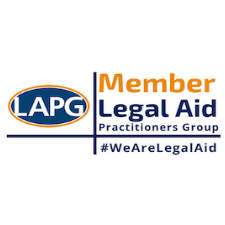The Local Authority has many responsibilities. Some of these responsibilities are voluntary in nature and some of them are mandatory and are contained in the Children Act 1989, which is an important piece of legislation. This article will focus on the statutory responsibilities of the Local Authority (those that are contained in legislation and their definitions. Please note that this is not an exhaustive list).
Section 20 of the Children Act 1989 allows the Local Authority to voluntary accommodate a Child in need. It is important to be aware that although this duty is written in statute (law), the Local Authority does not have an automatic right to use it and there are certain important requirements to fulfil before doing so. The Local Authority may accommodate a child in need if there is no one with parental responsibility to care for them, the child is lost or abandoned or those with parental responsibility are unable to care for them. It is important to note that if a parent objects to their child being accommodated under a Section 20 Agreement, the Local Authority cannot accommodate the child. For further information about the specific requirements of Section 20, please visit the following link:
https://www.legislation.gov.uk/ukpga/1989/41/section/20#timelineHelp
Parental responsibility encompasses all of the rights, duties and responsibilities a person has in relation to that particular child and its definition can be found in the Children Act 1989.
The Local Authority may decide that a child is in need following their initial enquiries. This duty to investigate is contained within section 47 of the Children Act 1989. For further information about this, please visit the following link:
https://www.johnsonastills.com/site/blog/ejablog/what-are-section-47-enquiries.
The definition of a Child in need is contained in the Children Act 1989, as a child who is unlikely to achieve or maintain a reasonable level of health or development, or those whose health and development is likely to be significantly or further impaired, without the provision of such services. These services would usually be provided by the Local Authority.
In order to provide the relevant support services, when the Local Authority assess a child in need they have a duty to carry out the relevant assessments. The Local Authority will usually need the help of other agencies who have worked with the family to form a view and the family’s Social Worker will usually liaise with these agencies.
If the Local Authority believes that a child requires immediate protection (whilst assessments are being carried out) they may decide that an Emergency Protection Order is necessary. It is usually the Local Authority who will make the application to the Court and it will depend on the specific circumstances. The requirements of this Order are contained in section 46 of the Children Act 1989 and should only be used in an emergency situation when all other avenues have been exhausted and there is an immediate risk to the child. For further information about the requirements of an Emergency Protection Order, please visit the following link:
https://www.johnsonastills.com/site/blog/ejablog/what-is-an-emergency-protection-order-epo.
If you would like to discuss the issues raised in this article and/or would like advice and assistance on a Care related matter please contact our Care Team at Johnson Astills on 0116 255 4855.








